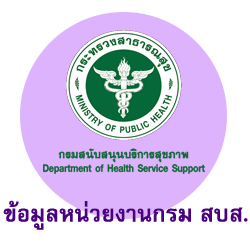The Model of Waste Management _in Phitsanulok province
Keywords:
Model, Waste Management, PhitsanulokAbstract
This Mixed-method research design aimed to evaluate model of waste management in Phitsanulok province. Data was collected both quantitative and qualitative methodsimplemented in 3 phases. Phase 1 study on the situations and the problems of waste management in Phitsanulok. The obtained 15 participants, government agencies involved in waste management, were recruited using Purposive samplings. Phase 1 data obtained by analysing documents. Phase 2 composed of evaluation of waste management model in Phitsanulok province that conducted with the participants, who involves in managing waste management. Purposive samplings employed to select 15 participants. Phase 2 data obtained by using focused group discussion. Satisfaction of waste management model in Phitsanulok that conducted with the participants, who people aged 20 and over in Phitsanulok. Simple Random Sampling employed to select 420 participants. Data collection obtained by using questionnaires. Phase 3 compose of return information of evaluation of waste management model that was carried out in the sample of stakeholder who involves in managing infectious waste. Purposive samplings employed with 15 study samples. Phase 3 data obtained by focused group discussion. Content analysis used for analyzing qualitative data.
The results showed that 74.3% of the sample had high level of knowledge in waste management, 54.8% of the sample had high level of policy participation in waste management, 83.4% have been modurate level of participation in waste management and 51.5% have been modurate level of
Satisfaction of waste management model. This study suggests that local administrative organization must make policy for four types of waste management and focus on the coordination between community.
References
Chantachoti C. (2017). Waste management on the main tourist routes of Chaiyaphum province. Journal of Western Research Humanities and Social Sciences 2017; 3(3), 1-10.
Chomprasert C. (2019).The Model of an Infectious Waste management of Patients in the communities at Phitsanulok Province.Journal of Public Health Naresuan University2019; 1(1), 53-66.
Kaewboonchu W., (2017). Factors Affecting Household Waste Separation Behavior of People in Donmueang Bangkok. The 20th National Graduate Research Conference. Khon Kaen University
Phitsanulok Provincial Public Health Office. (2018). Annual Report 2017. Phitsanulok Provincial Public Health Office, Phitsanulok.
Pollution Control Department. (2017). Action plan “Thailand without garbage” according to the guidelines “Pracha Rat” (2016-2017). Pollution Control Department, Ministry of Natural Resources and Environment, Bangkok.
Pollution Control Department. (2018). MasterPlan for Municipal Waste Management (2016- 2021). Bangkok: Active Print Co., Ltd.
Sawatdichithang N., (2014) The Development Model Management Solid Waste of Community in Udon Thani Municipality. Journal of Graduate Study in Humanities and Social Sciences 2014;3 (1), 47-64.
Suttipongpracha T., (2017) Public participation and confidence in local administrative organizations: a case study of Khon Kaen Municipality. Bangkok: Local Government Promotion Foundation.
Downloads
Published
How to Cite
Issue
Section
License

This work is licensed under a Creative Commons Attribution-NonCommercial-NoDerivatives 4.0 International License.



